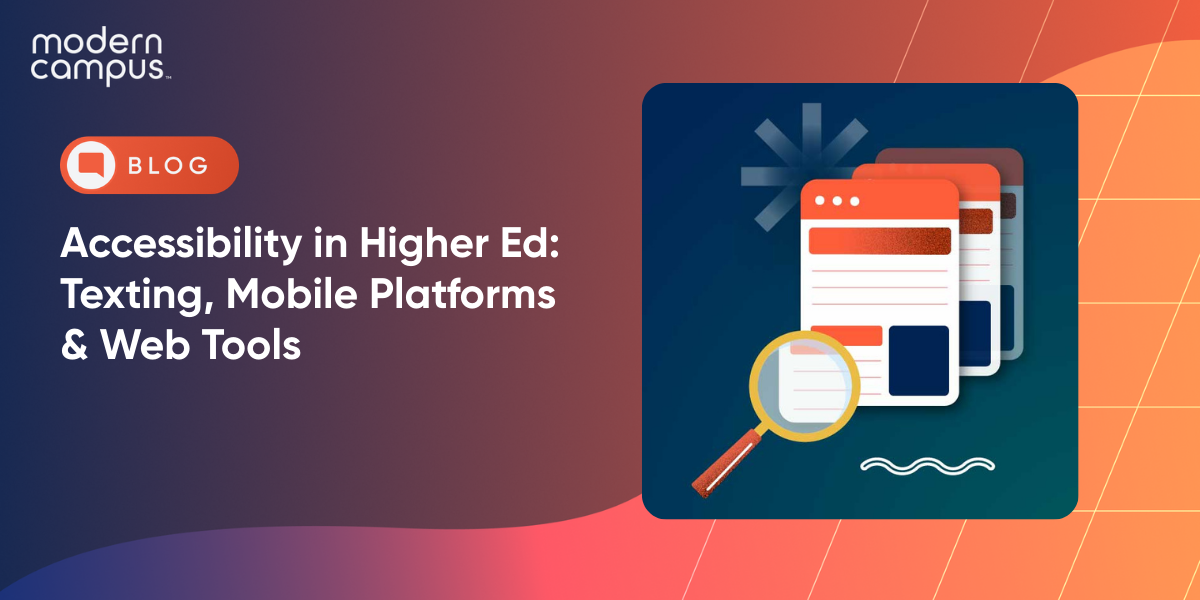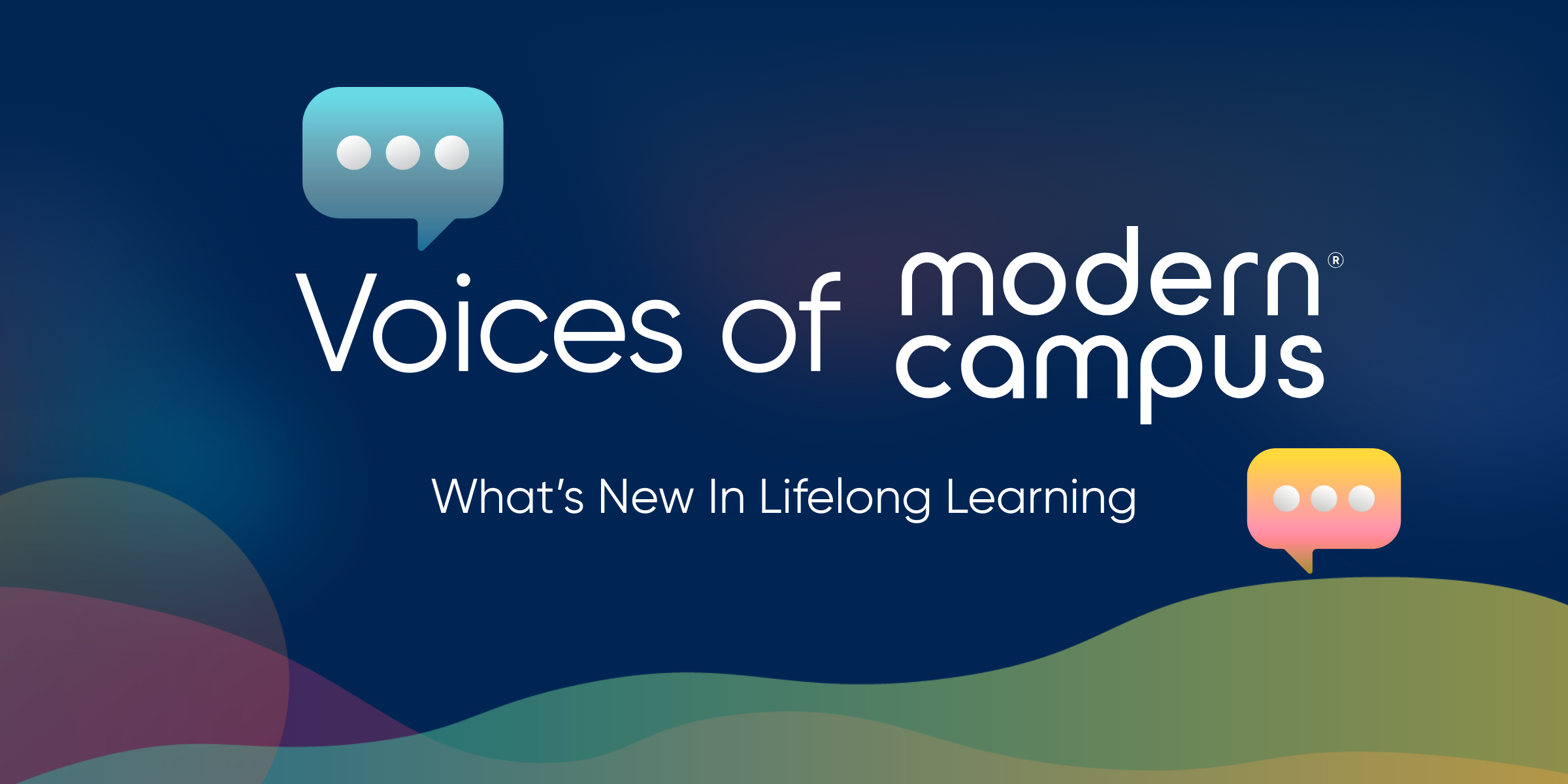Three Approaches to Improving Program Responsiveness with Destiny One
Divisions offering non-degree programs need to get their offerings to market quickly.
Ineffectual back-end systems delay this goal, weighing down administrators and support
staff with lengthy launch processes.
Now more than ever, learners and employers want specific technical skills—skills embedded in many non-credit credentials, but that aren’t showcased or highlighted.
Below, leaders from two schools talk about how they’ve remained agile in a fast-changing market.
1. Destiny One streamlines processes and accelerates program launch
With workflows that automated the steps behind program launches, George Mason University swiftly adapted to address demands.
“One of the most encouraging things about Destiny One is the existence of the workflows,” said Lisa Sedlock, Assistant Director of Operations for Academic Ventures at Mason.
Automated program approval processes not only helped Mason streamline business processes, but it gave Mason ideas to about how to manage other high-level business processes.
2. Destiny One supports badging initiatives
Destiny One integrates seamlessly with Credly Acclaim to create and issue digital microcredentials that signal specific competencies to employers.
“Destiny’s integration is so seamless, and it's so easy to set up, that I can see the issuance of badges in Destiny and in Acclaim,” Sedlock said. “I don’t have to do any work to get that set up.”
With one click, learners can go to their student portal, manage their profile, see their digital badge and interact with it.
Dan McLeod, Enrollment Systems Business Analyst for Outreach and Engagement at University of New Hampshire, said Destiny’s addition of badges has increased learner engagement with UNH.
“Post-COVID, we’ve seen 85% acceptance of our badges,” McLeod said.
Destiny adds badges to your credential framework without any additional complexity.
“We added one click,” McLeod said. “Destiny is our powerhouse.”
3. Destiny One makes process change and adaptation easy
Destiny One enables fast responses to learner needs and market forces at George Mason University.
“Destiny enabled a dramatic response to a crisis, and the creation of sample courses to show students what our online education is all about,” said Marc Austin, Executive Director of Professional Education and Academic Ventures at Mason.
Sedlock confirmed: “Destiny’s flexibility meant we had the only system that could turn things around for the university. Destiny speaks to our LMS and to Banner to move students through the operational process.”
McLeod at UNH said main campus faculties are now approaching non-credit faculty to shepherd them through the “new normal” of remote education.
“We’re flexible and quick, and the traditional credit side of the university is coming to us,” McLeod said. “We’re seen as a solution now.”
4 Ways to Stay Agile in Continuing Education
How tailor-made software delivers the flexibility needed for modern campuses to stay competitive.
Last updated: February 1, 2021



